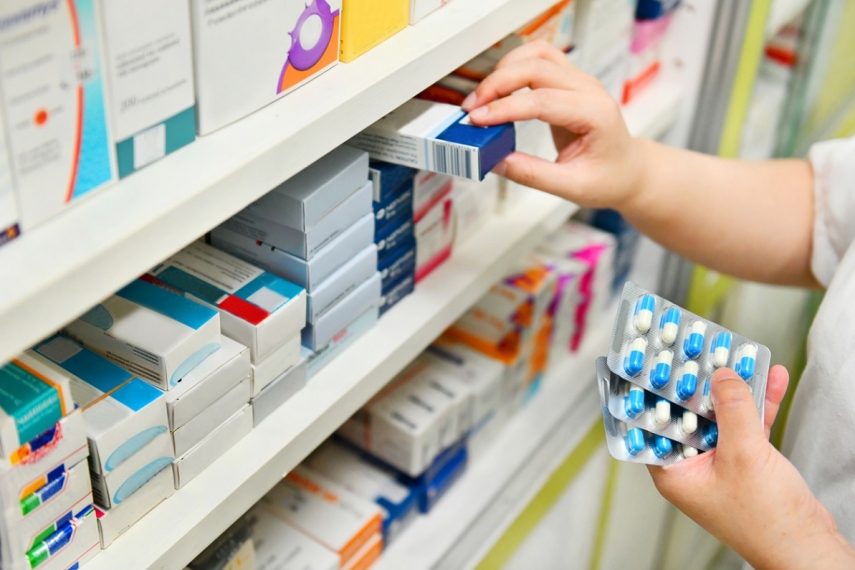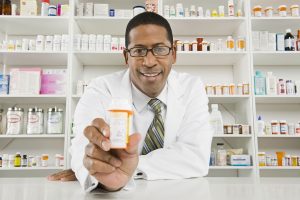What Is Doctor Of Pharmacy
Doctor of Pharmacy (PharmD) is a professional doctoral degree awarded to pharmacy graduates after the successful completion of a six-year program. PharmD programs generally emphasize experiential learning and provide hands-on training in both community and hospital pharmacies. Upon graduation, pharmacists are eligible to become licensed pharmacists in the United States and many other countries.
The Doctor of Pharmacy degree is the only professional pharmacy degree recognized in the United States. The first PharmD degree program was established at the University of Pittsburgh in 1822. The American Association of Colleges of Pharmacy (AACP) currently accredits 241 PharmD degree programs offered by 191 colleges and schools of pharmacy in the United States.
The PharmD degree is a prerequisite for licensure as a pharmacist in the United States. To be eligible for licensure, pharmacists must pass the North American Pharmacist Licensure Examination (NAPLEX). The NAPLEX is a nationally standardized examination that tests a pharmacist’s knowledge of the practice of pharmacy.
Definition of Doctor of Pharmacy
A Doctor of Pharmacy (PharmD) is a professional degree awarded to pharmacists who have completed a rigorous academic program. After graduating from an accredited PharmD program, pharmacists are eligible to sit for the Pharmacist Licensing Exam (PJlex), which is required in most states in order to practice pharmacy.
The Doctor of Pharmacy degree is the only professional degree in pharmacy. Pharmacists with a PharmD degree are highly trained in the safe and effective use of medications, and are equipped with the knowledge and skills to provide patient-centered care.
The PharmD curriculum is designed to provide students with a strong foundation in the sciences, as well as in pharmacy practice. In addition to coursework in pharmacology, pharmacy law and ethics, and pharmacy management, students also complete rotations in a variety of pharmacy settings. These rotations give students the opportunity to apply their knowledge and skills in a real-world setting, and to develop relationships with pharmacists and other healthcare professionals.
The Doctor of Pharmacy degree is a terminal degree, meaning that it is the highest degree that can be earned in the field of pharmacy. After completing a PharmD program, pharmacists can pursue additional training in a specialty area, such as pharmacy administration, pharmacy practice, or pharmacotherapy.
Educational Requirements for Doctor of Pharmacy
Doctor of Pharmacy (PharmD) is the professional degree in pharmacy. To become a licensed pharmacist, one must complete a rigorous academic program and pass two exams: the North American Pharmacist Licensure Exam (NAPLEX) and the Multi-State Pharmacy Jurisprudence Exam (MPJE).
The Doctor of Pharmacy curriculum is based on the four core areas of pharmaceutical sciences, pharmacotherapy, pharmacy practice, and pharmacoeconomics and outcomes research. In addition, students complete advanced coursework in patient care, leadership, and management. The PharmD degree requires a minimum of six years of postsecondary education, including a year of pharmacy practice experience.
Pharmacy is one of the few health care professions that require postsecondary education for entry into the profession. The Doctor of Pharmacy degree is the only degree that is recognized by the American Pharmacists Association as the entry-level professional degree for pharmacists.
Scope of Practice for Doctor of Pharmacy
The Doctor of Pharmacy (Pharm.D.) degree is the only professional degree for pharmacy. Upon graduation, pharmacists are qualified to dispense prescription medication, counsel patients on drug therapies, provide drug information, and provide pharmacy care services.
The scope of practice for a Pharm.D. is broad. Pharmacists are able to provide patient counseling for prescription and over-the-counter medications, recommend drug therapies, and provide information about drug interactions and side effects. Pharmacists also may provide other pharmacy care services, such as providing immunizations, conducting medication reviews, and providing diabetes counseling.
In addition to their clinical duties, pharmacists also are responsible for ensuring the safe and effective use of medications. They also may be involved in pharmacy research and the development of new medications.
The Doctor of Pharmacy degree is a four-year degree that requires a minimum of two years of professional practice experience. Pharmacists who hold the Pharm.D. degree are licensed to practice in all 50 states.
Job Opportunities for Doctor of Pharmacy Graduates
Doctor of Pharmacy graduates have a variety of job opportunities available to them. The most common career paths for pharmacists include working in community pharmacies, hospitals, and academia.
Community Pharmacists: Community pharmacists work in retail pharmacies and provide medication therapy management services to patients. They also counsel patients on the use of over-the-counter medications and nutritional supplements, and provide medication therapy consultations to other healthcare professionals.
Hospital Pharmacists: Hospital pharmacists work in Inpatient and Outpatient settings and provide medication therapy management and consultative services to patients and other healthcare professionals. They also collaborate with other healthcare professionals to develop and implement patient care plans.
Academic Pharmacists: Academic pharmacists work in universities and colleges and provide teaching and research services. They also provide clinical services to patients in academic health centers.
Differences Between Doctor of Pharmacy and Other Pharmacy Degrees
Doctor of Pharmacy (Pharm.D.) is a professional doctorate degree in pharmacy. It is the only doctoral degree in pharmacy. Other pharmacy degrees are either undergraduate degrees (B.S. in Pharmacy or Pharm.A.) or graduate degrees (M.S. in Pharmacy, Pharm.D./M.S. in Pharmacy, or Pharm.D./Ph.D. in Pharmacy).
The Pharm.D. curriculum is research-intensive and includes advanced coursework in pharmacology and therapeutics, pharmaceutics, and pharmacy practice. In addition, Pharm.D. students complete a research project or dissertation. Pharm.D. graduates are highly sought after by employers and are well prepared to enter into a variety of pharmacy careers.
The Pharm.D. is the only doctoral degree in pharmacy. Other pharmacy degrees are either undergraduate degrees (B.S. in Pharmacy or Pharm.A.) or graduate degrees (M.S. in Pharmacy, Pharm.D./M.S. in Pharmacy, or Pharm.D./Ph.D. in Pharmacy).
Specializations within Doctor of Pharmacy Programs
Doctor of Pharmacy (PharmD) programs are four-year professional programs that train students in the knowledge and skills necessary to become licensed pharmacists. Pharmacists are experts in the safe and effective use of medications, and they play a critical role in the healthcare system.
Most PharmD programs offer a variety of specializations, which allow students to focus their studies on a particular area of pharmacy. Specializations can be in areas such as community pharmacy, hospital pharmacy, pharmaceutical sciences, or pharmacotherapy.
Community Pharmacy
Community pharmacists provide medication and other health care services to the general public. They work in retail pharmacies, grocery stores, and other settings. Community pharmacists are responsible for ensuring that patients receive the correct medications and that they are used safely and effectively.
Hospital Pharmacy
Hospital pharmacists work in hospitals and other healthcare settings. They are responsible for ensuring that patients receive the correct medications and that they are used safely and effectively. Hospital pharmacists also play a role in drug procurement and formulary management.
Pharmaceutical Sciences
Pharmaceutical sciences is a field of pharmacy that focuses on the research and development of new medications. Pharmaceutical scientists conduct research on the chemical and biological properties of medications, and they develop new ways to improve the safety and efficacy of medications.
Pharmacotherapy
Pharmacotherapy is the study and treatment of diseases with medications. Pharmacotherapists specialize in the use of medications to treat diseases such as diabetes, heart disease, and asthma. They also work with patients to develop personalized drug therapy regimens.
Importance of Doctor of Pharmacy in Healthcare System
Doctor of pharmacy (Pharm.D.) is a professional doctorate degree in pharmacy. The Pharm.D. is the highest academic degree in pharmacy. It is a six-year program that includes undergraduate coursework and a professional doctoral program.
The Pharm.D. degree is the key to becoming a practicing pharmacist. Graduates of accredited Pharm.D. programs are eligible to take the North American Pharmacist Licensure Examination (NAPLEX) to become licensed pharmacists.
The Pharm.D. degree is important in the healthcare system because it is the key to becoming a practicing pharmacist. Pharmacists are an important part of the healthcare team and play a vital role in the delivery of healthcare. They are responsible for the safe and effective use of medications and work with other health care professionals to ensure that patients receive the best possible care.
Graduates of accredited Pharm.D. programs are also eligible to pursue careers in academia. There is a growing demand for pharmacists with advanced degrees and many universities are now offering Pharm.D. and Ph.D. programs in pharmacy.
The Pharm.D. degree is an important part of the healthcare system and plays a vital role in the delivery of healthcare. It is the key to becoming a practicing pharmacist and graduates of accredited Pharm.D. programs are eligible to take the NAPLEX and pursue careers in academia.
Challenges Faced by Doctor of Pharmacy Graduates in the Workforce
Doctor of pharmacy (Pharm.D.) graduates often face challenges in the workforce, such as finding a job in their desired field, earning a livable wage and dealing with long work hours.
One challenge Pharm.D. graduates face is finding a job in their desired field. According to a survey by the National Association of Chain Drug Stores, only 39% of Pharm.D. graduates were working in a job related to their degree in 2016. Many Pharm.D. graduates take jobs in retail pharmacies, which often do not require a Pharm.D.
Another challenge Pharm.D. graduates face is earning a livable wage. A study by the National Institute for Labor Relations Research found that the median wage for Pharm.D. graduates working in retail pharmacies was $57,000 in 2016. This is lower than the median wage for all workers with a Pharm.D., which was $82,000 in 2016.
A third challenge Pharm.D. graduates face is dealing with long work hours. A study by the National Institute for Labor Relations Research found that the median work hours for Pharm.D. graduates working in retail pharmacies was 47 hours per week in 2016. This is higher than the median work hours for all workers with a Pharm.D., which was 39 hours per week in 2016.





0